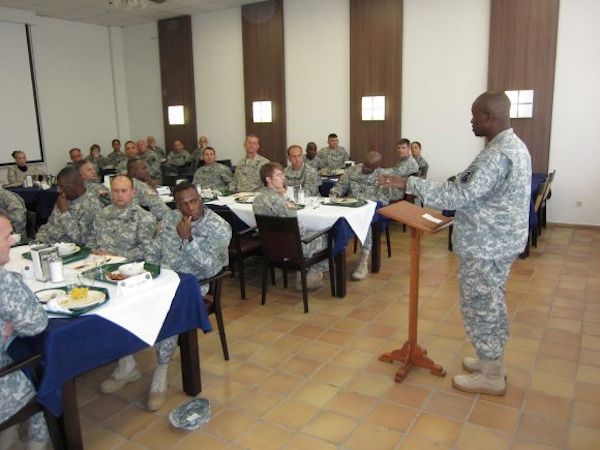NDAA Provision to Address Suicide Among Military Ranks

Just five days prior to the Sandy Hook Elementary shooting in Newton, CT, Rep. Hank Johnson (D-GA) and Sen. John Kerry (D-Mass), along with a bipartisan group of congressman, sent a letter to the Senate and House Armed Services Committees demanding that a provision for the 2013 National Defense Authorization Bill that addresses suicide among the nation’s military ranks be included in the legislation.
The language of the provision (Sec. 1071 in the House bill) would allow military commanding officers and mental health professionals to talk to service members about their personal firearms and encourage them to safely store these weapons in a military facility or with the use of a gun lock. It has already been added to the House version of the NDAA bill and passed by the chamber.
The provision says:
"...authorize a mental health professional that is a member of the Armed Forces or a civilian employee of the Department of Defense or a commanding officer to inquire if a member of the Armed Forces plans to acquire, or already possesses or owns, a privately-owned firearm, ammunition, or other weapon, if such mental health professional or such commanding officer has reasonable grounds to believe such member is at high risk for suicide or causing harm to others."
The letter stated that the goal of the provision is to serve as a preventative measure and retain open dialogue about firearms in order to protect service members and their families from tragedies like suicides.
“This is not an attempt to limit gun rights or an individual’s ability to own a firearm,” said Rep. Johnson. “Prohibiting commanders and mental health professionals from helping soldiers defies common sense and dangerously interferes with our obligation to ensure the health, welfare, morale and well-being of the troops. Military suicide is a complex problem that demands a range of actions to address it. This common sense provision adds another tool to help prevent tragic deaths.”
The letter points to an eighteen percent increase in suicide rates among military personnel and that three quarters of military suicides were committed with a personal firearm between 2008 and 2010.
Rep. Johnson and Sen. Kerry also received support from several high ranking military commanding officers. Retired Generals Dennis J. Reimer, Chief of Staff of the Army from 1995 to 1999, and Peter W. Chiarelli, Vice Chief of Staff of the Army from 2008-2012, said that the provision would reinstate the authority of DoD officials to speak to returning troops about firearms without consequence. They believe this was eliminated when Sec. 1062 was added to the 2011 NDAA bill.
That NDAA provision stated that the Secretary of Defense was prohibited from collecting or recording information regarding the lawful ownership and possession of firearms. Opponents of the provision, including high ranking generals, Rep. Johnson, and Sen. Kerry, argue that it limits the work of military mental health professionals from speaking out about gun ownership to at-risk service members.
However, in 2011, Principal Deputy Under Secretary of Defense for Personnel and Readiness Jo Ann Rooney sent a memo to military clinical professionals stating that the 2011 amendment would not limit their ability to talk to service members and their families about gun possession and safety in regards to preventing suicides.
Rooney stated that clinicians were obligated to inquire about possession of weapons at the home in order to assess the risk of suicide or domestic violence, as well as to complement safety planning efforts for families dealing with at-risk service members.
Still, Johnson and Kerry argue that the new provision would lawfully permit commanding officers and mental health professionals to encourage service members to store their weapons in a military facility or gun lock. Essentially, the provision would mark a step towards bridging the gap between mental illness, suicide, and gun violence within military ranks.




